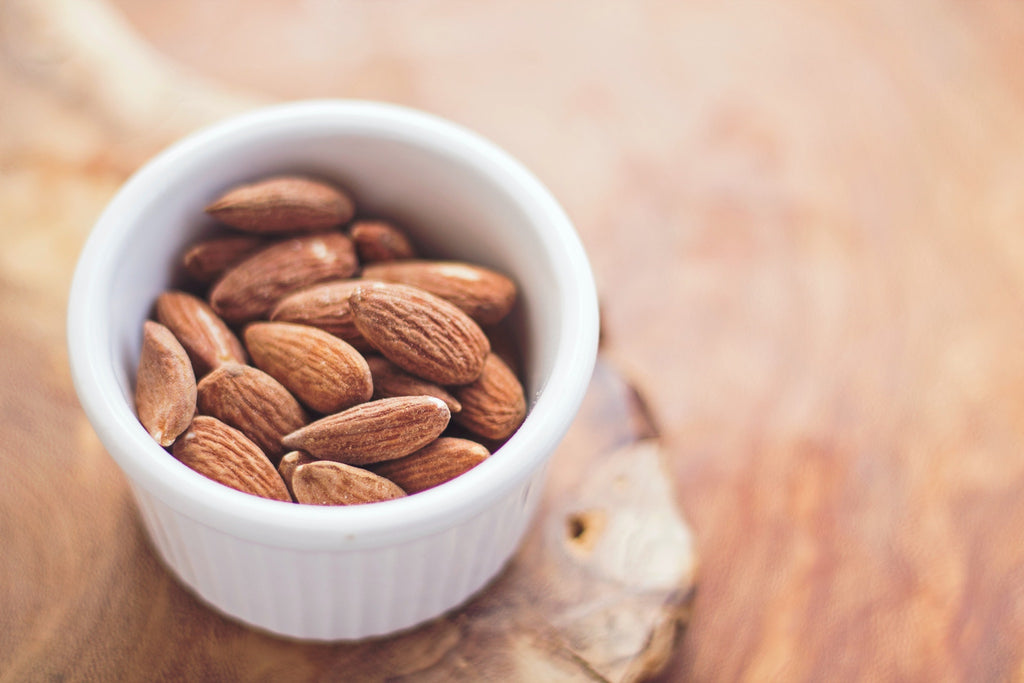From small dark spots to large brown patches, hyperpigmentation can appear in many forms. But, no matter what it looks like, most of us don’t like it and want to do something about it.
This discolouration of the skin is natural and completely harmless. And it’s common, too. Here at Face Dr, our experts have seen hundreds of clients with hyperpigmentation and—most importantly—we’ve helped them to lighten the look of these dark spots and patches.
If you’re noticing changes in your skin tone and new dark spots appearing, the easiest thing you can do is include some skincare products in your routine which are designed to treat hyperpigmentation. Luckily, there are ingredients out there which help to lighten the look of dark spots and prevent new ones from forming.

But where do you start? And how do you choose the best ones for you?
In this guide, we explore the most effective ingredients for treating hyperpigmentation. From gentle brightening agents to stronger corrective actives, we explain how each works and who it is best suited for. This will help you make informed choices when selecting skincare products for dark spots and uneven skin tone.
Want to save time and get tailored recommendations for your exact concerns? Book a free online skincare consultation with one of our experts.
What causes hyperpigmentation?
Hyperpigmentation occurs when excess melanin is produced in the skin. Melanin is the natural pigment responsible for the colour of our skin, hair, and eyes. When melanin clusters in certain areas, it forms dark spots and uneven patches on the skin’s surface.
There are three main types of hyperpigmentation:
• Sunspots
• Melasma
• Post-inflammatory hyperpigmentation
Sunspots are the most common type and develop due to sun exposure. The skin produces extra melanin as a defence against UV damage.
Melasma is hormone-related and often appears during pregnancy or as a result of hormonal contraception or treatments.
Post-inflammatory hyperpigmentation develops after skin inflammation caused by acne, burns, eczema, or injury.
Although these types differ in cause, many skincare ingredients can help improve all forms of hyperpigmentation when used correctly.
With complex ingredient lists and unfamiliar scientific names, choosing the right skincare products can feel overwhelming. Some ingredients can brighten the skin, while others may worsen pigmentation if used incorrectly.
To help you choose wisely, here is our expert guide to the most effective ingredients for treating hyperpigmentation.
Which ingredients treat hyperpigmentation?
Mandelic acid

Who’s it for? Mandelic acid is ideal for those with sensitive skin as it’s gentler than other products. It’s also had great results on darker skin types and for those with melasma.
Product to try: Glytone Mandelic Gentle Resurfacing Serum
Despite the scary name, mandelic acid is actually made from almonds. It’s a type of alpha hydroxy acid, or AHA, a group of acids which are used in a variety of skincare products, from acne treatments to anti-ageing products.
Mandelic acid works as an exfoliant and removes dead skin cells by breaking down the connections between them with its acidic properties. It also promotes skin cell turnover, so a brighter complexion and more even skin tone can come through.
Interested in learning more? Check our article on What is mandelic acid and what can it do for your skin?
Glycolic acid
Who’s it for? Glycolic acid tends to work better on fairer skin tones as those with darker skin could experience scarring or post-inflammatory hyperpigmentation if the skin reacts
Product to try: Obagi Medical Nu-Derm Exfoderm Forte
Glycolic acid is another AHA. It works as a type of chemical peel that exfoliates the skin by breaking down the molecules which hold dead skin cells together to loosen and lifts them off your skin. By removing the outer layer of dead skin cells, the ingredient reveals lighter and brighter skin beneath.
You can buy products containing glycolic acid over the counter. These are weaker concentrations that exfoliate the epidermis—the outer layer of the skin only. Stronger glycolic acid products that penetrate the deeper layers of the skin and target more stubborn dark spots are available by prescription through skincare professionals.
If you’ve tried other options and your dark spots still aren’t budging, it might be time to turn to glycolic acid. But, as it’s a stronger ingredient, it’s not for everyone. You can speak with an experienced skincare professional to get the best advice for your exact skin type and if glycolic acid should be on your radar.
Vitamin C

Who’s it for? All skin types
Product to try: Obagi Medical Professional-C Serum 10%
Here’s one we’ve all heard about before. While we often turn to vitamin C when we’ve got a cold to boost our immune system, it’s helpful when treating hyperpigmentation, too.
Vitamin C, sometimes called ascorbic acid, is an antioxidant that combats free radicals. These are harmful molecules, like UV rays, which can damage skin and can cause hyperpigmentation. Vitamin C neutralises these to prevent further damage to the skin. It also works to reduce melanin production in the skin, which stops more dark spots from appearing and lightens the appearance of existing discolouration.
Liquorice root extract

Who’s it for? All skin types, even sensitive
Product to try: ZO Brightalive Skin Brightener
You may have only heard of liquorice as a sweet, but it’s been used for medicinal purposes for years. Liquorice root extract naturally contains an active ingredient called glabridin which reduces the production of melanin in the body.
Without as much melanin, it's harder for the skin to create new dark pigment and worsen the appearance of hyperpigmentation. Licorice root extract also has anti-inflammatory and antioxidant properties that protect the skin from damage, help the skin recover and repair, and brighten existing discolouration.
Kojic acid

Who’s it for? All skin types
Product to try: Skinceuticals Discoloration Defence Serum
Kojic acid is derived from a fungus that is created when rice is fermented. Though often found in the food industry, kojic acid has huge potential in skincare, too.
In order for melanin to form, it needs an enzyme called tyrosine. Kojic acid is effective at reducing the look of hyperpigmentation because it blocks the production of tyrosine. This means less melanin in the skin and less dark spots and patches on the surface.
Just as with other acids, it also exfoliates by loosening dead skin cells which, in turn, reveals a brighter complexion beneath. Kojic acid also helps other ingredients in skincare products penetrate into deeper layers of the skin to target stubborn dark spots.
Hydroquinone

Who’s it for? Lighter skin tones and oily and combination skin types. Hydroquinone can be an option for dry skin and darker skin tones but you should speak with a skincare expert first to be sure it’s right for you.
Product to try: Obagi Nu-Derm 3 Clear
Hydroquinone is something of a controversial ingredient for hyperpigmentation. On one hand, it has been proven highly effective when reducing the look of dark spots and discoloured patches. On the other, there is a greater risk of the skin reacting, causing post-inflammatory hyperpigmentation—essentially making the problem worse—and for areas that aren’t dark spots to be bleached. So, it’s worth proceeding with caution, speaking with a skincare expert and doing a patch test.
Hydroquinone is another product that inhibits melanin production by blocking tyrosinase, making dark pigments less visible. There are different strengths of hydroquinone available, which range from 2% over the counter to over 4% by prescription.
Can't decide?

Hyperpigmentation is a natural skin reaction, and although it’s generally harmless, many people look for ways to lighten the spots and treat them. Hopefully,this blog post has shed some light on the ingredients out there that can treat hyperpigmentation. If you’re looking to lighten the appearance of dark spots, be sure to look out for these top ingredients:
- Mandelic acid
- Vitamin C
- Glycolic acid
- Licorice root
- Kojic acid
- Hydroquinone
But if you’re not sure which is best for you or you’ve found an ingredient you’d like to include in your skincare routine but not sure which product to try, here at Face Dr, we've got a team of fully trained skincare experts ready to help.
You can book a free online skincare consultation with our team. We’ll talk you through which ingredients are best for your skin type and hyperpigmentation concern and give you some product recommendations which include them, too.





